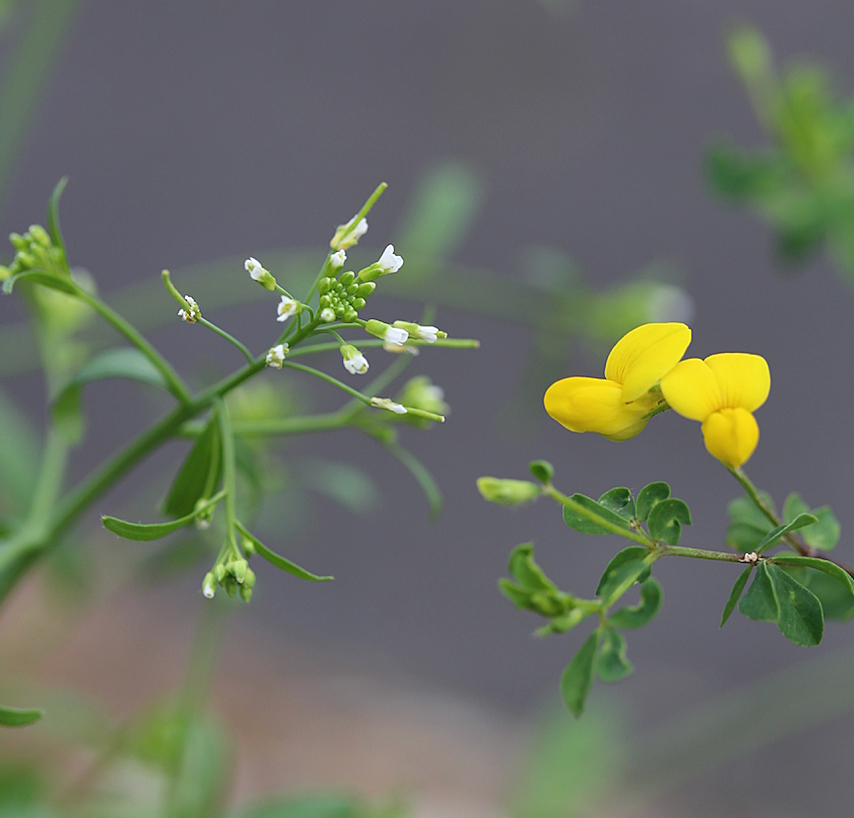Commensals associated with plant roots discovered to have host preference, providing clues for selection and design of bioinoculants
Researchers from Aarhus University and the Max Planck Institute for Plant Breeding Research in Cologne, Germany have discovered that root commensal bacteria are adapted to their host species, providing them with competitive advantages when applied exogenously and have to invade the existing bacterial community in their native host. This discovery provides clues for how to identify and tailor bacterial inoculants for improving plant growth in a sustainable manner.

Plants, including crops such as rice, wheat and soybean, recruit diverse microbes from the surrounding soil to associate with their roots as commensals. The recruited microbes assemble within structured communities known as root microbiota.
To date, researchers have found that root microbiota can promote plant growth, shorten flowering time, contribute to plant resistance against (a)biotic stresses. Therefore, addressing questions about the manipulation of these communities for practical purposes in sustainable agriculture will be of tremendous benefit. For example: What makes a bacterium a reliable inoculant? Can microbes isolated from one plant be transferred to another species as an inoculum, and will the beneficial feature of this inoculants still persist in this novel root environment? Would an already established microbiota have an effect on the exogenously-applied inoculants?
To start answering these questions, an international team of researchers from AU and the Max Planck Institute for Plant Breeding Research (Cologne, Germany) explored whether commensals differ in their ability to colonize roots of different plant species, and if host preference contributes to the invasion of established root microbiota in native and non-native hosts.
The host preferences of commensal bacteria
As the first step, two model plant species, Arabidopisis thaliana and Lotus japonicus, were chosen to explore the host preferences of root commensals. For this, live bacterial strains were needed and a comprehensive bacterial culture collection was therefore established from Lotus roots. Together with a previously established culture collection from Arabidopsis roots, synthetic communities (SynCom), which combined bacteria from either Lotus or Arabidopsis, were designed and used for re-inoculation on axenic Lotus and Arabidopsis.
Interestingly, Lotus-derived strains were more abundant in Lotus roots and the Arabidopsis-derived strains were more abundant in Arabidopsis. This confirmed that commensal bacteria preferentially colonize their native host. Moreover, this host preference displayed by bacterial strains only manifested in a community context, where different microbes interacted with each other, and did not persist when individual bacterial species were allowed to colonize the respective plant roots individually.
The invasiveness of commensal bacteria
Next, the researchers investigated if host preference has an impact when plants have an established microbiota already. For this, the authors performed a series of complex experiments where SynComs from the two host species were allowed to invade already established root-associated bacterial communities in native and non-native plants. Their results showed that native commensals had a competitive advantage when invading an already established microbiota of their native host plant.
Ke Tao, a first co-author on the paper says: “This was an exciting and enriching scientific journey together with our colleagues from MPI Cologne”. Simona Radutoiu, one of the corresponding authors, said: “This is very promising and inspiring work that will keep us busy for the next few years. Identifying which plant and bacterial genes contribute to host preference will enable us to engineer and explore novel and stable bioinoculants for use in sustainable agriculture”.
The research was carried out as a collaboration between researchers from the Department of Molecular Biology and Genetics at Aarhus University and the Max Planck Institute for Plant Breeding Research in Cologne.
Type of study: Experiment
External collaborators:
Department of Plant-Microbe Interactions, Max Planck Institute for Plant Breeding Research, Cologne, Germany, Cluster of Excellence on Plant Sciences, Düsseldorf, Germany.
External funding:
This research was funded by the Max Planck Society and Deutsche Forschungsgemeinschaft (DFG, German Research Foundation) under Germany’s Excellence Strategy, EXC-Nummer 2048/1, project no. 390686111 and the ‘2125 DECRyPT’ Priority Programme through P.S.-L. and R.G.-O. K.T. was funded by the Chinese Scholarship Council. The Novo Nordisk programme InRoot, grant no. NNF19SA0059362, funded K.T. and S.R.
Conflict of interest: None
Link to the scientific article in Nature Microbiology:
Host preference and invasiveness of commensal bacteria in the Lotus and Arabidopsis root microbiota
Kathrin Wippel, Ke Tao, Yulong Niu, Rafal Zgadzaj, Niklas Kiel, Rui Guan, Eik Dahms, Pengfan Zhang, Dorthe B. Jensen, Elke Logemann, Simona Radutoiu, Paul Schulze-Lefert and Ruben Garrido-Oter
DOI: https://doi.org/10.1038/s41564-021-00941-9
Contact information:
Simona Radutoiu
Department of Molecular Biology and Genetics, Aarhus University, Denmark
radutoiu@mbg.au.dk – Telefon: 87155498
